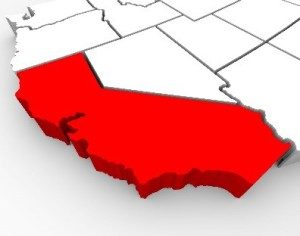
Market-Based Sourcing of revenue for services as related to income tax apportionment purposes is becoming a trend among states. As our economy becomes more service intensive, determining how to properly source service and intangible revenue is vital to the states. According to Bloomberg BNA, California’s latest draft rules for market-based sourcing of sales of intangibles are confusing and could affect defense contractors, asset managers, and R&D service companies.
On May 18, 2018, the California Franchise Tax Board (FTB) held its third Interested Parties Meeting (IPM) regarding proposed amendments to California Code Regulations, Title 18 (CCR), Section 25136-2. This section of the CA Regulations describe the provisions of market-based sourcing rules for California taxpayers.
Background
California shifted from the cost-of-performance method to the market-based sourcing method when assigning income from sales of services and intangibles, such as software. The shift came with California’s switch to elective single-sales-factor apportionment for multistate taxpayers in 2011 and mandatory single-sales-factor apportionment in 2013.
California generally sources receipts derived from services to CA to the extent the taxpayer’s customer receives the benefit of service in CA. Depending on whether the taxpayer’s customer is an individual or business entity, CA applies a particular set of cascading sourcing rules to determine where the benefit is received.
Interested Parties Meetings
Interested parties meetings are informal meetings with the public at which the FTB can obtain input, ask questions, and provide ideas on revising a specific draft regulation. In a recent May 18 meeting, the FTB looked to get ideas from the public on how to clarify CCR Title 18, Section 25136-2.
Two FTB attorneys led the discussion meeting for interested parties. Overall, taxpayers and practitioners at the meeting indicated that the FTB’s current draft has some areas of concern including issues regarding nexus, rules for pass-through entities, and questions on applications for certain industries.
Purpose of the changes
As noted by Deloitte, some of the most notable changes to Draft CCR Section 25135-2 noted at the meeting include:
- Simplifying the rules for assigning receipts from sales of services to businesses and government entities.
- Rules and examples on how government contractors should determine the location of the benefit of service is received including how to source receipts when a reasonable approximation method is used.
- Guidance on how to source receipts where the sale involves both services and tangible or intangible personal property.
- Assignment rules for receipts derived from asset management services.
- Guidance for sourcing receipts derived from the sale of pass-through entity interests and corporate stock or from dividends or goodwill.
- Special rule requiring the FTB to accept the taxpayer’s reasonable approximation method unless the FTB shows by a preponderance of the evidence that the taxpayer’s method is unreasonable.
The changes proposed by the FTB in Draft CCR Section 25136-2 would represent a significant change to CA’s market-based sourcing rules impacting service providers in general as well as contracts involving asset management services, government entities, and research and development services. These changes also impact receipts derived from sales of corporate stock.
What’s next?
The FTB is still taking comments from the public until July 18. At that time, the agency will issue another draft and hopefully clarify some of the remaining discrepancies. Those changes would likely be released in about six months.
Taxpayers with sales derived from services or intangible personal property should consult with their tax practitioners and other consultants to evaluate how the FTB’s proposed amendments to CCR Section 25136-2 may impact your business. Please contact us for help with your multistate tax needs.


















